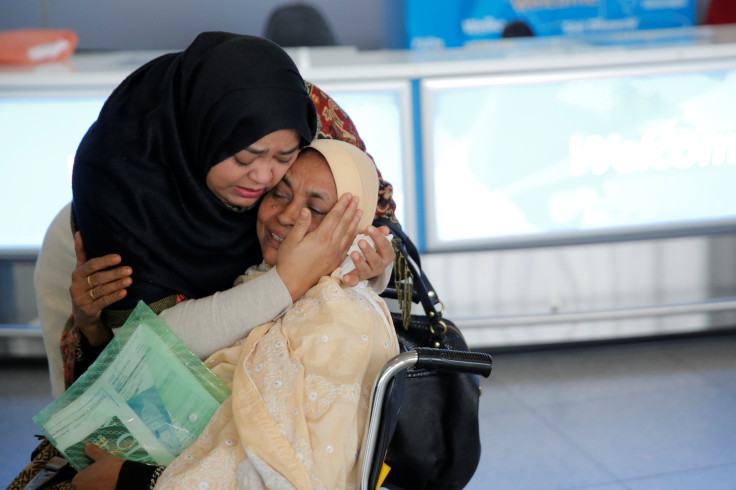Are Muslims Banned From The US? Canada Will Take Refugees, Non-Citizens Stranded By Trump's Order

Following a weekend of chaos at U.S. airports amid President Donald Trump’s Friday executive order barring refugees and citizens of seven majority-Muslim countries from entering the country, Canada’s foreign minister is offering temporary residence to stranded asylum-seekers, visa and green card holders and visitors.
“Let me assure those who may be stranded in Canada that I will use my authority as minister to provide them with temporary residency if they need it,” Ahmed Hussen said at a Sunday news conference in Toronto, according to Reuters. “Every country has the right to determine their policies.”
The offer echoed a tweet by Prime Minister Justin Trudeau on Saturday welcoming “those fleeing persecution, terror & war, regardless of your faith.”
To those fleeing persecution, terror & war, Canadians will welcome you, regardless of your faith. Diversity is our strength #WelcomeToCanada
— Justin Trudeau (@JustinTrudeau) January 28, 2017
Hussen added that Trump had informed him that dual citizens of Canada and any of the seven countries listed in the executive order — Syria, Iraq, Iran, Libya, Somalia, Sudan and Yemen — would be permitted to enter the U.S., the AFP news agency reported.
Canada’s tech industry offered a similar message, pushing the government to take a step further Sunday. In an open letter signed by nearly 1,600 sector workers, the community urged Trudeau’s administration to offer visas, access to benefits and the opportunity to become permanent residents for tech workers who had been living in the U.S. but were unable to return over the weekend as a result of Trump’s policy.
“Many Canadian tech entrepreneurs are immigrants, are the children of immigrants, employ and have been employed by immigrants,” the letter said. “As connected economies, decisions by the United States can directly impact every business north of the border. The recently signed Executive Order to block entry of citizens from seven countries has already impacted several in our community. As a community, we are all affected. ”
Lawyers and activists also called on the Canadian government to reevaluate a 2004 agreement with the U.S., the Safe Third Country Agreement, which states that refugees must seek asylum in the first country they land in—either Canada or the U.S.—and cannot migrate across the border without having their asylum granted. It exempts unaccompanied minors and those with family in either North American country, but critics of Trump’s 120-day suspension of all refugee admissions merited a new look at the pact.
© Copyright IBTimes 2024. All rights reserved.






















